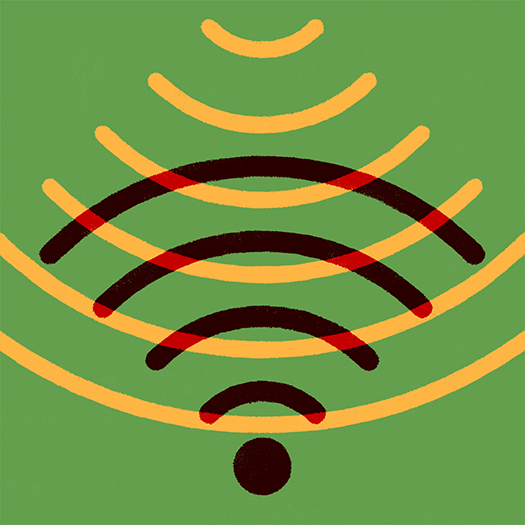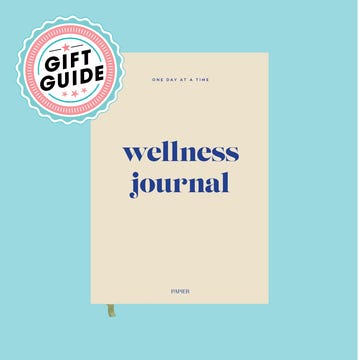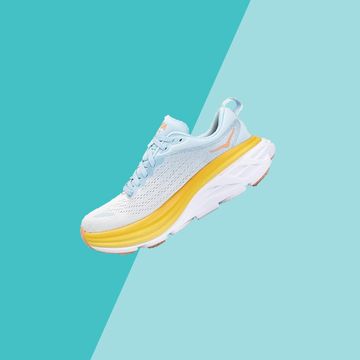Prevention's 2019 Health Breakthrough Awards
From wireless heart disease detectors to a new drug for severe depression, here are 10 major medical innovations from the past year.
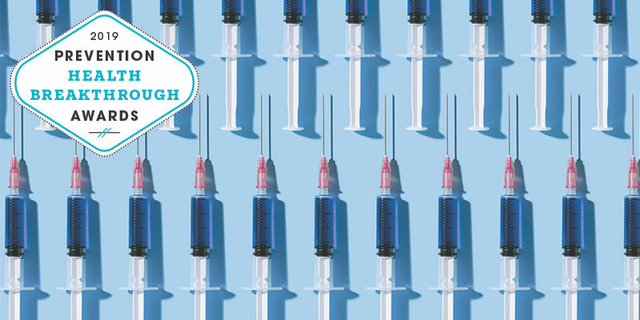
We may earn commission from links on this page, but we only recommend products we back. Why Trust Us?
It's an exciting time for the future of health care—from the launch of wireless heart disease detectors to the development of a new drug for severe depression. So Prevention editors poured over new studies, products, and FDA-approved drugs to select those that are truly innovative and potentially life-changing. Here are the results.
An IV Treatment That Heals Spinal Cord Injuries
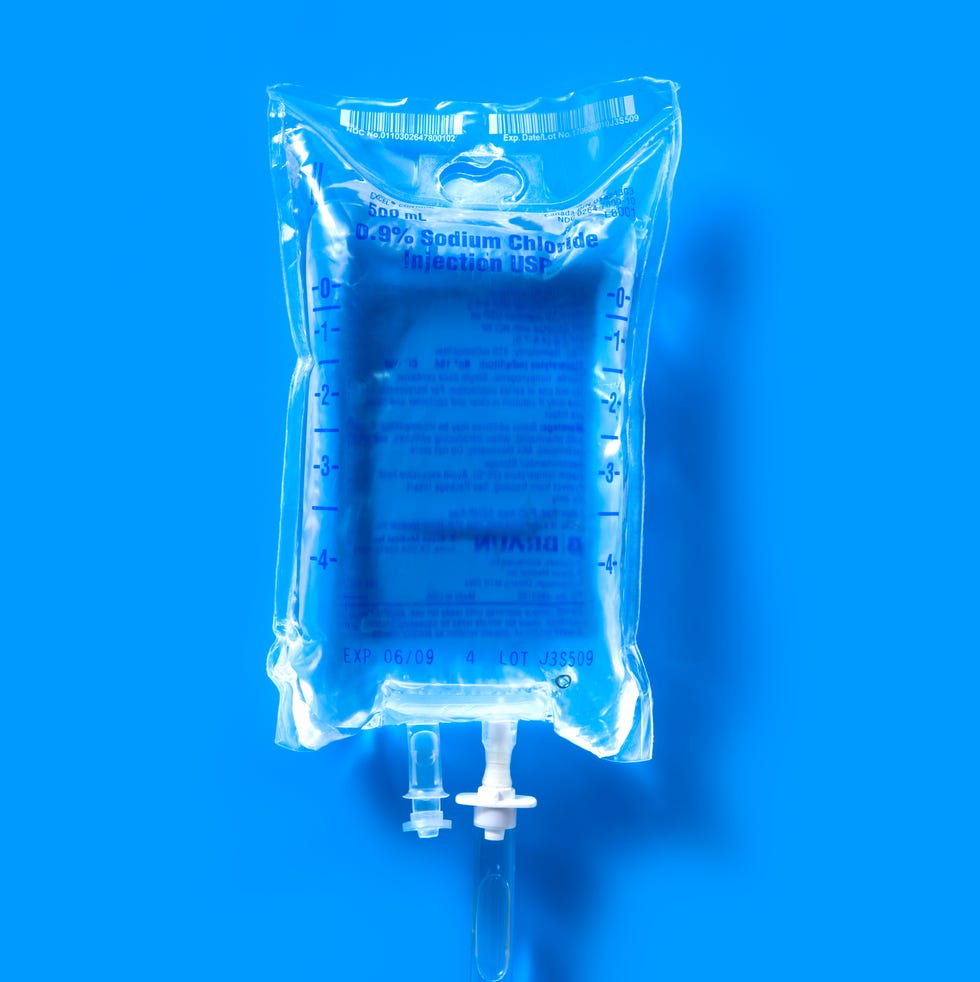
Award Winner: Lonnie Shea, Ph.D.
When the spine is traumatized, your immune cells flood to the injured area and overreact, essentially doing more harm than good. Those overzealous immune cells create too much inflammation for the delicate nerves of the spine, ultimately damaging them beyond repair. That’s what leads to paralysis. But new research in mice shows that an injection of special nanoparticles administered intravenously to the spine within two hours of a trauma can actually intercept and redirect some of those well-intentioned immune cells, preventing the spinal cord from degenerating. “Getting the spinal cord to regenerate after a trauma is a challenge, which is why finding a way to prevent nerve damage is exciting,” says Shea. While more research is needed before this treatment can be given to humans, it’s a huge step. “I’ve worked in spinal cord injury research for many years," says Shea, "and this is the one thing that’s had the biggest impact in how the mice recover.”
Award Winner: AliveCor
When you’re worried about your heart—say, you sense a flutter or you just feel off—your cardiologist will likely order an electrocardiogram (a.k.a. EKG or ECG) to measure the electrical activity of your ticker. An EKG can detect a potentially dangerous abnormal rhythm. The problem? If your specific symptoms don’t happen when you’re at the doc’s office with the EKG wires attached to you, the recording may show that you’re fine—even if something’s wrong. Enter AliveCor’s KardiaMobile 6L, a first-of-its-kind EKG that you can use at home (when you’re having symptoms or simply to stay on top of your heart health) to see six different measurements of your heart’s electrical activity. Just open the app on your smartphone and place the bottom sensor on your left knee and your thumbs on the sensors on the top. Results appear after 30 seconds. Send this data electronically to your doctor or have it reviewed by a board-certified cardiologist or a trained cardiac technician for an out-of-pocket fee.
BLACK + DECKER A Voice Assistant + Medication Dispenser
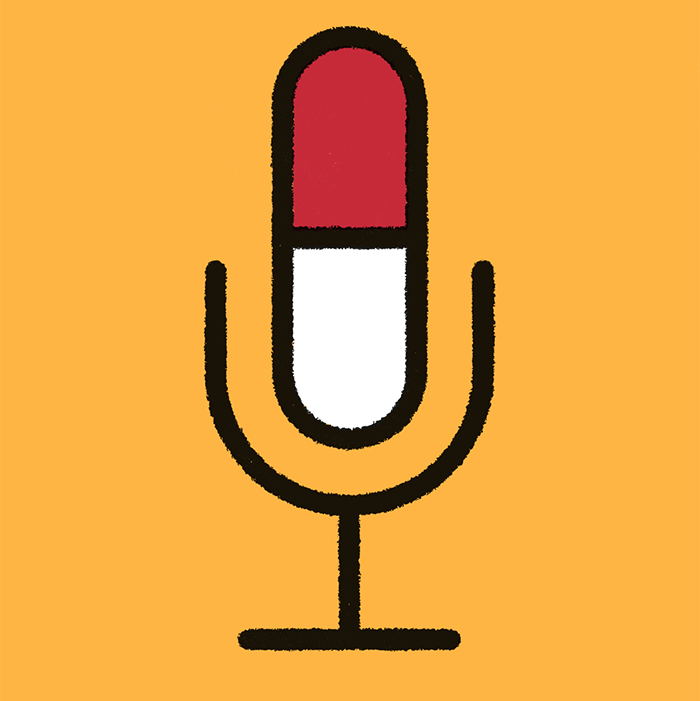
BLACK + DECKER A Voice Assistant + Medication Dispenser
Award Winner: Pria
More than 200 million smart speakers are being used to play Beyoncé hits, give weather updates, or remind people to take meds. Now, there’s Pria—a voice assistant and video chatting portal that does all that and dispenses pills (it holds 28 preloaded doses) at the proper time. It’s great for caregivers, as you can program Pria from afar using its app. It allows you to set doctor’s appointment reminders or wake-up calls on a loved one’s device or even turn its video camera on and “drop in” to check on her if she’s not answering her phone. “It essentially gives you a tether to make sure loved ones are taking care of their health—even when you can’t be there in person,” says Sean O’Brien, director of health at Stanley Healthcare, the division of Black+Decker that created this new device.
A Virtual Reality Device That’ll Help You Stress Less
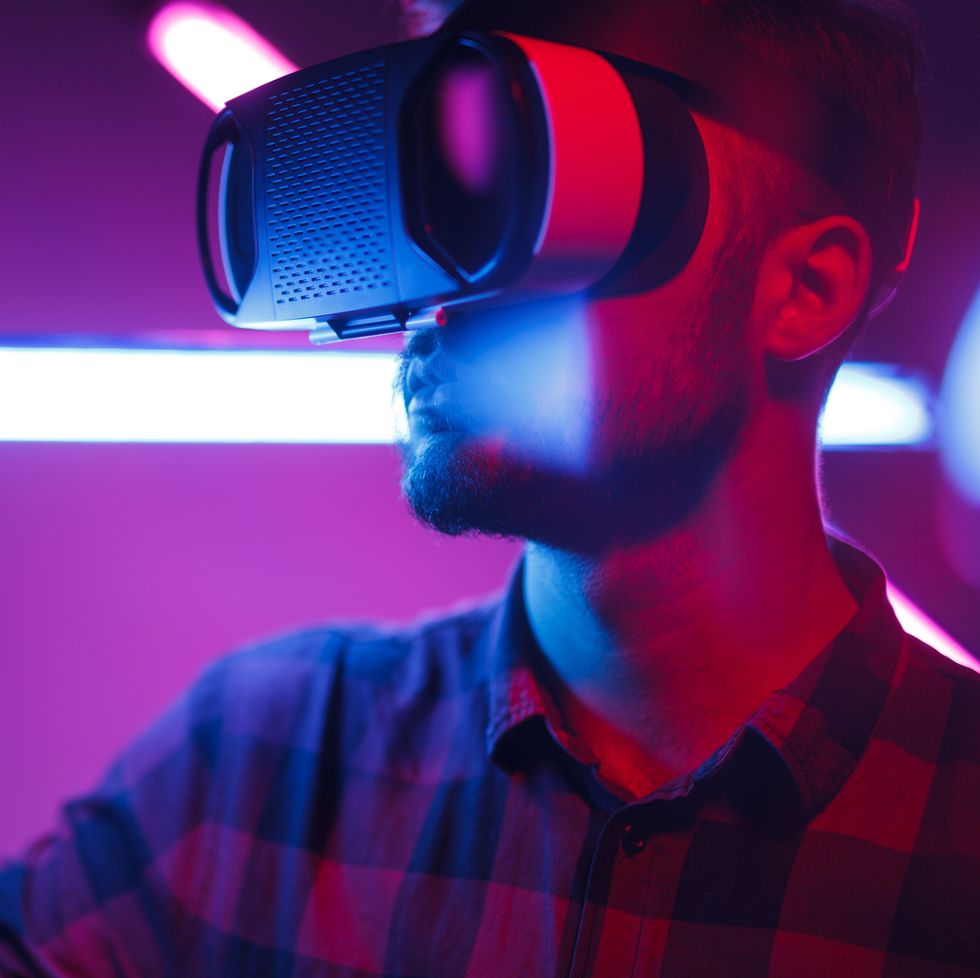
Award Winner: BehaVR
The medical world is psyched about virtual reality (VR), thanks to a slew of research showing that putting on VR goggles can help treat pain, addiction, anxiety, and more. It’s used in some labor and delivery wards to shift women’s focus away from their pain during labor and by therapists to help their patients confront and conquer their anxiety triggers. A new start-up called BehaVR is hoping to broaden VR’s use by offering programming that addresses the root cause of so many chronic illnesses: stress. “All too often, we don’t help patients improve their behavioral health beyond telling them to go to yoga and meditate,” says Aaron Gani, BehaVR’s founder and CEO. “Our programming gives patients biofeedback that helps them learn to notice a stress response when it’s happening and act upon that.” For example, you might learn to meditate by breathing to the rhythm of a lotus flower opening and closing; as your heart rate slows, the flower’s color will change, giving you real-time confirmation that what you’re doing is working. BehaVR also offers educational and motivational content to help patients make positive changes and stay compliant with treatments. Currently, 150 health care practitioners in the U.S. are using BehaVR, and Gani hopes to make it available for people to buy to use at home by 2020.
Two Ways to Help Women Boost Their Libido
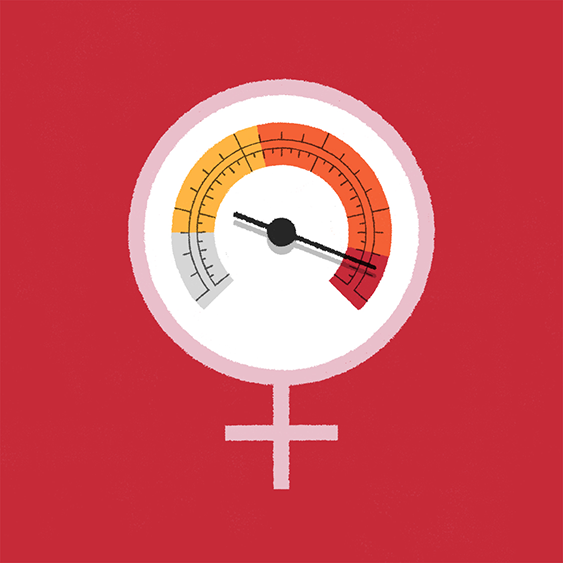
Award Winners: Addyi and Vyleesi
For years, men have had Viagra and other drugs to treat sexual dysfunction. Finally, progress is being made for women. A couple of options are now available to treat one of the most common female sexual concerns: low libido. In 2015, the FDA approved flibanserin (marketed as Addyi), a daily pill that targets serotonin receptors in the brain to boost sex drive, but strict alcohol restrictions made it unappealing to many women. This year, those restrictions were loosened as a result of postmarket studies that found that moderate drinking was safe when using the med (but alcohol should be avoided for two hours prior to taking a dose). In June, the FDA also approved bremelanotide (marketed as Vyleesi), a synthetic hormone women can inject into their thighs or abdomens 45 minutes before sex, which research shows activates receptors in the body that help regulate arousal (as well as hunger and immunity). Unfortunately, the effectiveness of both drugs is limited, and they come with significant side effects—nausea and sleepiness are biggies. However, they’re steps forward in women’s health, and they’ve launched a national conversation about women’s right to desire and the best way to facilitate it.
A Space-Saving Virtual Personal Trainer
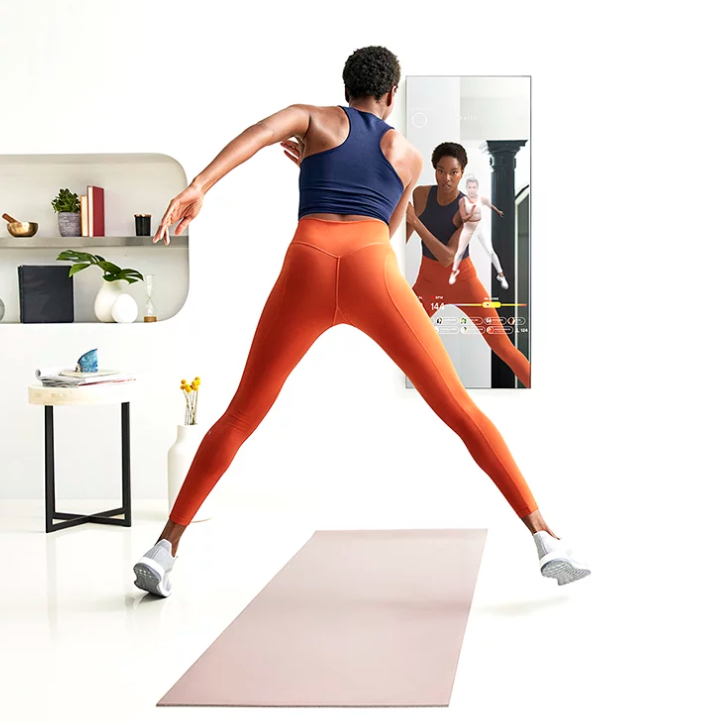
Award Winner: Mirror
High-tech fitness equipment is having a moment—and it’s going beyond stationary bikes and treadmills with screens that let you take classes at home. Brynn Putnam, a fitness studio instructor and former professional dancer with the New York City Ballet, wanted more variety in her at-home exercise routine, so she launched Mirror, a new way to get your fitness on: It’s a full-length mirror that doubles as an LCD screen (with speakers). On it, you can stream live or on-demand workout classes. Choose from more than a dozen activities—including cardio, strength, yoga, Pilates, HIIT, and kickboxing—and because Mirror is reflective, you can keep an eye on your form. The microphone and a two-way camera (which comes with a lens cap for privacy) also let your instructor check your form. For an up-charge, you can do virtual one-on-one personal training.
A New Medication for Depression
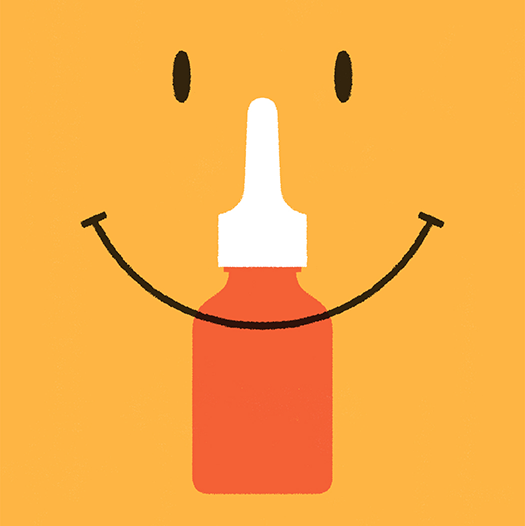
Award Winner: John Krystal, M.D.
For people with severe depression that hasn’t improved with standard antidepressants, this year brought hopeful news: The FDA approved a new fast-acting nasal spray that shows the potential to be a game changer. Esketamine (marketed as Spravato) is a form of the drug ketamine and triggers reactions in the brain that researchers say literally change the gray matter, fine-tuning existing neural pathways and building new ones. Dr. Krystal, one of the pioneers of ketamine research in the U.S., says this can give someone with depression the ability to develop more positive thoughts and behaviors. The FDA requires doses to be taken in a doctor’s office or clinic, because side effects can include transient psychotic episodes in patients who are at high risk for them and also to reduce the risk of addiction. The medication is typically added to ongoing antidepressant treatment. Including cognitive behavioral therapy in the treatment plan, Dr. Krystal adds, may help patients create more positive behaviors and thought patterns as their new neural connections are forming.
Standards for the Exploding Hemp Industry

Award Winner: The U.S. Hemp Authority
There’s promising research on and plenty of rave reviews of the anti-inflammatory and antianxiety power of cannabidiol (CBD), a cannabis compound that doesn’t get you high. It’s now showing up in everything from oils, tinctures, and topicals to CBD-infused lattes and cocktails. Heck, even Coca-Cola is reported to be considering adding it to some of its beverages as an ingredient. However, with little regulation dealing with quality control in this booming industry, it can be tough to know for sure if what you’re buying is good quality. Enter the U.S. Hemp Authority, a watchdog for the industry that has created a certification program to provide some guidance for consumers. CBD producers, manufacturers, and growers have to meet stringent standards set by the U.S. Hemp Authority and pass an independent audit to use its seal.
A Non-invasive Way to Diagnose Heart Disease
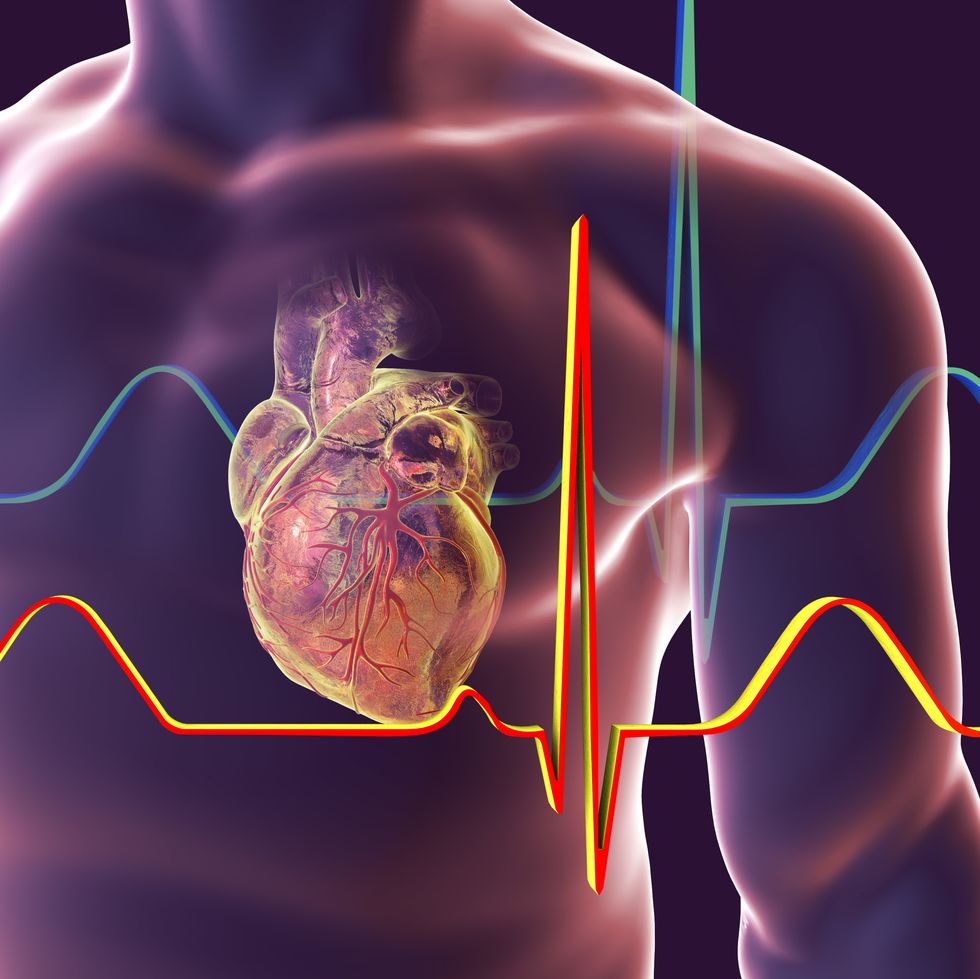
Award Winner: HeartFlow
For people experiencing chest pain—not the crushing I’m-having-a-heart-attack kind of agony, but a heaviness or tightness during exercise—doctors usually order a SPECT scan to see if an artery in the heart is clogged or narrowed. The challenge is that not all blockages are detectable on a SPECT scan, so if your symptoms persist, your doc will likely order an angiogram. For that test, a long catheter is inserted and dye is delivered into your heart’s blood vessels so plaque buildup appears on an X-ray. Fortunately, more than 180 hospitals have started using a new technology called the HeartFlow Analysis. It uses a patient’s coronary CT scan along with artificial intelligence (AI) and trained analysts to create a 3-D model of the patient’s coronary arteries to show docs, vessel by vessel, if enough blood is reaching the heart. “We’re using this technology to essentially give cardiologists an accurate picture of what’s happening in the heart without having to do an invasive test,” says Charley Taylor, Ph.D., a computational fluid dynamics engineer and cofounder and CTO of HeartFlow. “It’s cost-effective and more efficient.”
Hospital Alarms That Are Not Annoying
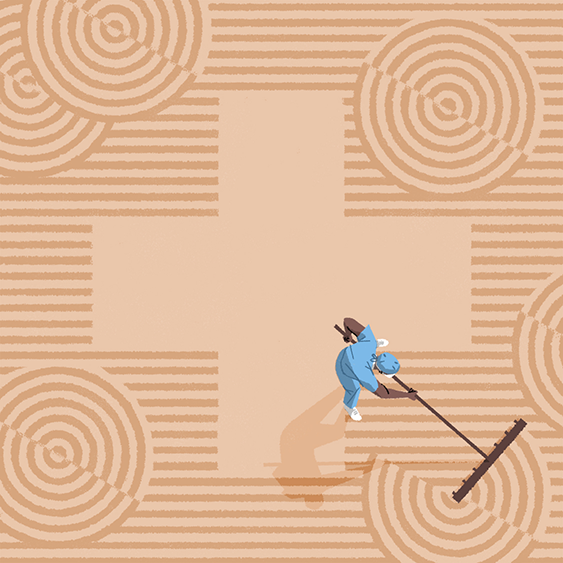
Award Winner: Judy Edworthy, Ph.D.
If you’ve ever spent a night in the hospital, you know how crazy-making the near-constant beeping of medical machinery is. It’s hardly a healing environment when those alarms keep you from getting good rest—especially if they spark anxiety about what all the pings and buzzes might mean. That’s why a group of researchers at multiple universities, led by Edworthy, are working to reduce hospital noise by making the necessary alarms more calming and understandable for both patients and docs. For example, rather than a beep when it’s time to administer a medication, the alert will sound like a pill bottle being shaken, or you might hear a heartbeat sound when a machine measures your heart rate or blood pressure. “We’re taking away the disturbing shrillness and making these alarm sounds more soothing,” says Edworthy. With plans for them to roll out in hospitals toward the end of 2020 (new sounds are expected to be downloaded on existing machines), there’s a good chance your next hospital stay will be a lot more tolerable.
This story originally appeared in the December 2019 issue of Prevention.
Watch Next


Foods That May Fight Seasonal Allergies

TikTok Discovers That Drumsticks Don’t Melt

These Home Remedies for Allergy Relief Really Work

How to ID the Most Common Bug Bites
